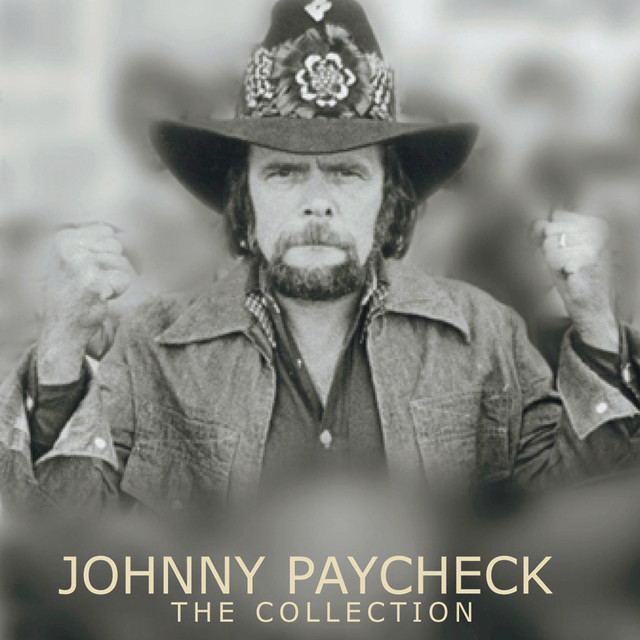“Take This Job and Shove It” by Johnny Paycheck is one of the most iconic working-class anthems in country music. Released in 1977, the song became a massive hit, reaching number one on the Billboard Hot Country Singles chart. Written by David Allan Coe, the song tapped into the frustrations of blue-collar workers who felt stuck in dead-end jobs, resonating with anyone who’s ever fantasized about walking out of work in a blaze of defiance. Its rebellious message, catchy title, and attitude of defiance turned it into a cultural phenomenon, making it a timeless symbol of worker dissatisfaction and personal liberation.

At its core, the song is about a man who’s had enough of his miserable job, overbearing boss, and unappreciated efforts. The opening line, “Take this job and shove it / I ain’t workin’ here no more,” is instantly memorable and perfectly sums up the feelings of frustration and resentment toward a job that no longer provides any sense of pride or fulfillment. These words have become an enduring catchphrase for quitting, capturing the spirit of those who are fed up with the grind.
What makes Johnny Paycheck’s version of the song so impactful is the conviction and grit in his delivery. His rugged, no-nonsense voice brings the character in the song to life, making him feel like someone who has reached his breaking point. Paycheck’s performance gives the song a sense of authenticity—it sounds like a man who’s lived the hardships he’s singing about, making the rebellious sentiment feel all the more real.
The song’s narrative is a classic tale of a worker who feels trapped in a toxic work environment. He’s been giving everything to a job that gives nothing back, and after years of being mistreated, he’s finally ready to walk away. But it’s not just the job he’s frustrated with; the lyrics suggest deeper personal problems, as the man reflects on a failed relationship, singing about the woman who left him, which adds an extra layer of bitterness and heartache to his decision to leave his job behind.
Musically, “Take This Job and Shove It” is a straightforward country tune with honky-tonk elements. The twangy guitars and upbeat tempo give the song a sense of drive and momentum, reflecting the character’s pent-up energy as he prepares to break free from his oppressive job. It’s a song that’s not just about quitting work; it’s about reclaiming dignity and self-respect, and the music mirrors that defiant attitude.
While the song struck a chord with workers who could relate to its message, it also became a cultural statement during a time when labor struggles and dissatisfaction with corporate America were widespread. The late 1970s were marked by economic challenges, inflation, and a growing sense of frustration among the working class. “Take This Job and Shove It” became more than just a country hit; it became an anthem for anyone who felt powerless in their job and dreamed of standing up to the boss.
The song’s success also sparked a cultural phenomenon beyond the music world. It was so popular that it inspired a 1981 comedy film of the same name, further cementing its place in pop culture. The phrase “Take this job and shove it” has since become a lasting slogan for workplace rebellion, used in countless contexts to express dissatisfaction with bad jobs or bosses.
Interestingly, while the song is often seen as a rebellious declaration, it’s also worth noting that the character doesn’t actually quit during the song. He talks about wanting to walk away, but there’s a sense that he might not have the freedom to follow through. This nuance adds depth to the song, as it captures the struggle of so many workers who want to leave but feel trapped by financial obligations or lack of alternatives. It’s a reminder that for many, the fantasy of quitting is just that—a fantasy—because walking away isn’t always an option.
In conclusion, “Take This Job and Shove It” remains a powerful and enduring anthem for the working class. Johnny Paycheck’s gritty performance, combined with David Allan Coe’s sharp, witty lyrics, make it a song that speaks to anyone who’s ever felt stuck in a dead-end job. Its legacy as a rebellious anthem continues to resonate with new generations of listeners, reminding us all of the universal desire for respect, dignity, and freedom in our work lives. The song’s defiant spirit, catchy hook, and cultural impact have ensured its place as one of the great classics of country music.
Take this job and shove it
I ain’t working here no more
My woman done left and took all the reason
I was working for
You better not try to stand in my way
As I’m a-walkin’ out the door
Take this job and shove it
I ain’t working here no more
I’ve been workin’ in this factory
For now on fifteen years
All this time I watched my woman
Drownin’ in a pool of tears
And I’ve seen a lot of good folk die
That had a lot of bills to pay
I’d give the shirt right offa’ my back
If I had the guts to say
Take this job and shove it
I ain’t working here no more
My woman done left and took all the reason
I was workin’ for
You better not try to stand in my way
As I’m a-walkin’ out the door
Take this job and shove it
I ain’t workin’ here no more
Well that foreman, he’s a regular dog
The line boss, he’s a fool
Got a brand new flattop haircut
Lord, he thinks he’s cool
One of these days I’m gonna’ blow my top
And that sucker, he’s gonna’ pay
Lord, I can’t wait to see their faces
When I get the nerve to say
Take this job and shove it
I ain’t working here no more
My woman done left and took all the reason
I was workin’ for
You better not try to stand in my way
As I’m a-walkin’ out the door
Take this job and shove it
I ain’t workin’ here no more
Take this job and shove it
